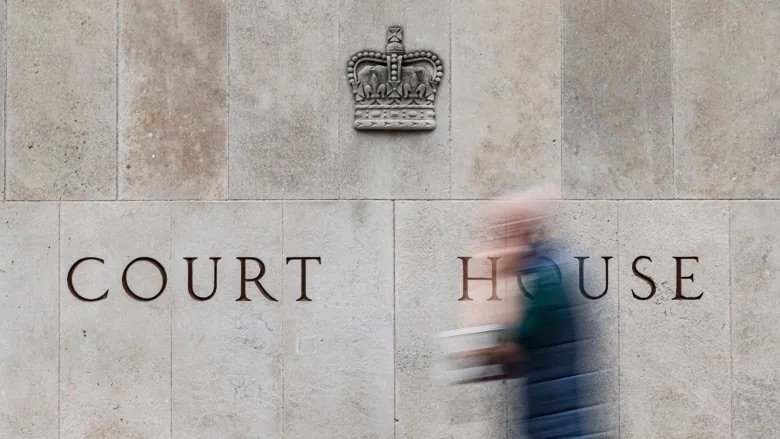Bill C-48: Strengthening Canada’s Bail System
Photo Credit: Christopher Katsarov/The Canadian Press via CBC
The Canadian federal government has introduced Bill C-48 in an effort to tighten up the bail system, after several high-profile violent crimes committed by repeat offenders, including the death of Ontario Provincial Police officer Constable Grzegorz (Greg) Pierzchala. One of the suspects in Constable Pierzchala’s murder was on bail at the time. In addition, provincial governments have been pressuring Ottawa to make the bail system more restrictive.
The bill began development in March this year, at a special meeting of the Federal-Provincial-Territorial Meeting of Ministers Responsible for Justice and Public Safety.
C-48 introduces a slew of proposed changes, targeting violent offences involving weapons including but not limited to firearms, knives, and bear spray. The bill also changes the bail stage which intimate partner violence (IPV) offenders go through.
A process called “reverse onus” will make it that offenders for violent offences involving weapons will need to prove why they should be allowed bail while they await trial, compared to traditionally where the onus is on the Crown to show that an offender should be denied bail.
The bill specifically would apply the reverse onus to offenders of violent offences with weapons who had committed a similar offence within five years of the second offence. The bill also proposes giving more control to the courts on their bail decision when it comes to IPV and firearm offenders.
Bill C-48 also would introduce the reverse onus for more types of firearms offenses, including unlawful possession of an easily loaded or prohibited or restricted firearm, as well as breaking and entering, or robbery to steal a firearm.
Finally, the bill would amend the definition of the term “prohibition order” in the context of reverse onus for weaponry offences. In cases where an individual is charged with committing an offence involving a firearm or specific prohibited weapons while being subject to a release order condition prohibiting their possession of such firearms or weapons, a reverse onus at bail would be applicable.
In a May 16 news conference, David Lametti, Minister of Justice and Attorney General of Canada, publicized the bill and shared its objective. “The goal of C-48 is [to improve] public safety. At the same time, we want to make sure these law reforms aren’t making things worse for [minority groups] who we know are overrepresented in the criminal justice system,” stated Lametti. Lametti believes that it is of utmost importance for C-48 to pass through Parliament quickly, and “firmly hopes that [the bill] will receive unanimous consent.”
The public had polarizing reactions to the proposition of the bill, with some, such as the union representing RCMP officers, calling it a “good first step,” and the Canadian Association of Chiefs of Police echoing a similar sentiment.
However, there were also many critics of the bill, either condemning it for being unnecessary or expressing concern that it was not extreme enough. The Canadian Civil Liberties Association said that “[the bill] will not accomplish [the goal of instilling a feeling of safety within communities],” and that “it is possible to protect the right to reasonable bail and ensure public safety.”
Karen Kuwica, president of the Nanaimo Area Public Safety Association, said in an interview aired on May 21 with CBC journalist Rosemary Barton, that the bill was “a step in the right direction…but on a community level, I’m not sure that it’s going to make a significant change.”
In March, Conservative Party of Canada leader Pierre Pollievre shared his thoughts and proposed a much stricter approach to bail. “Violent offenders newly arrested for another violent offence will have to serve their entire period in jail, not bail, and not early parole. That’s common sense,” Pollievre proclaimed in a Mar. 28 news conference.
Lametti addressed these criticisms in a separate Rosemary Barton Live interview on May 21. He said that his government team had a “very narrow margin to work with when it [came] to infringing upon Canadians’ right to bail under the [Charter].”
He further elaborated, stating, “My honest answer is that I don't think you can go further. By staying in that very, very narrow lane, we feel that we're quite compliant with the Charter, but we're also addressing a number of very specific needs.” Because the Charter of Rights and Freedoms guarantees that anyone who is charged with a crime will not be denied reasonable bail without just cause, reforms may encounter issues in that regard, but Lametti has firm confidence in Bill C-48, and hopes that it will be passed.

